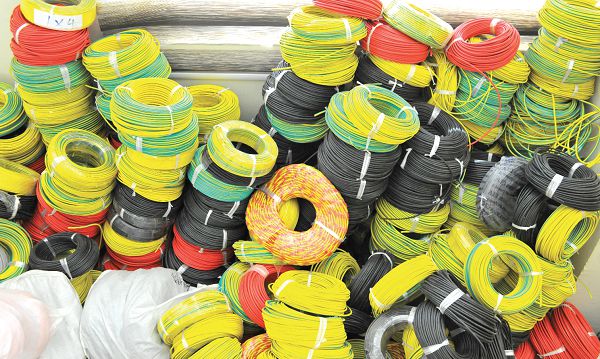
GSA impounds fake electrical cables at Tema Port
The Ghana Standards Authority (GSA) has seized five containers of fake and substandard cables that were imported from China at the Tema Port.
Two Chinese nationals, who were behind the importation of the electrical products, have been arrested and are assisting the police in investigations.
Action
The Director-General of the GSA, Professor Alex Dodoo, said in an interview that the cables would be destroyed in a few days.
“We are in discussions with the Parliamentary Select Committee on Trade and Industry to enable us have the mandate to destroy such products when we impound them,” he said.
He added that his outfit was also collaborating with other stakeholders such as the Environmental Protection Agency (EPA) and the Customs Division of the Ghana Revenue Authority (GRA) on how such products could be destroyed.
“Currently, the authority is not permitted by law to dismantle and destroy such substandard products when we confiscate them and so we will have to liaise with other regulatory agencies on the way foward,” he added.
Fake cables
In a scheme to rake in profit, several importers of electrical cables are flooding the market with fake products that do not meet safety requirements.
A nationwide surveillance conducted by the Ghana Standards Authority (GSA) last Friday revealed that more than 70 per cent of all imported electrical cable brands on the market were substandard and could cause fires.
Out of 22 electrical cable brands sampled for laboratory testing, only two locally manufactured cables passed the critical safety requirement test for conductor resistance at the GSA cable laboratory in Accra.
The test also showed that 20 brands of imported products did not meet the test-approved requirements in safety standards.
Market surveillance
Checks by the Daily Graphic also indicated that imported electrical cables were far cheaper on the market than locally manufactured ones.
For instance, while locally manufactured cables cost between GH¢180 and GH¢200 per coil, the imported ones went for between GH¢30 and GH¢45.
Although a fake cable may not be discovered from its cover, a simple test in a laboratory can reveal its authenticity.
Some of the features of substandard cables include reduced diameter of copper conductor, the use of copper-clad aluminium or other metals instead of copper conductor, reduced insulation thickness, shorter length per coil and fake labels or packaging even in terms of quality certification.
